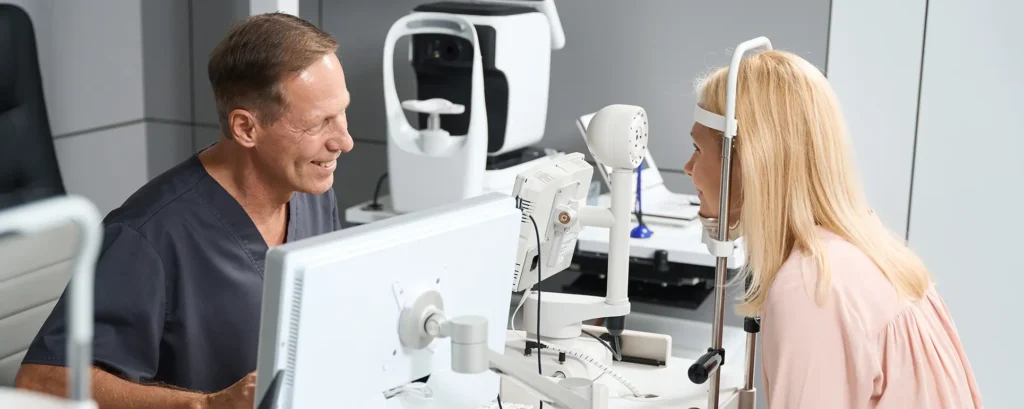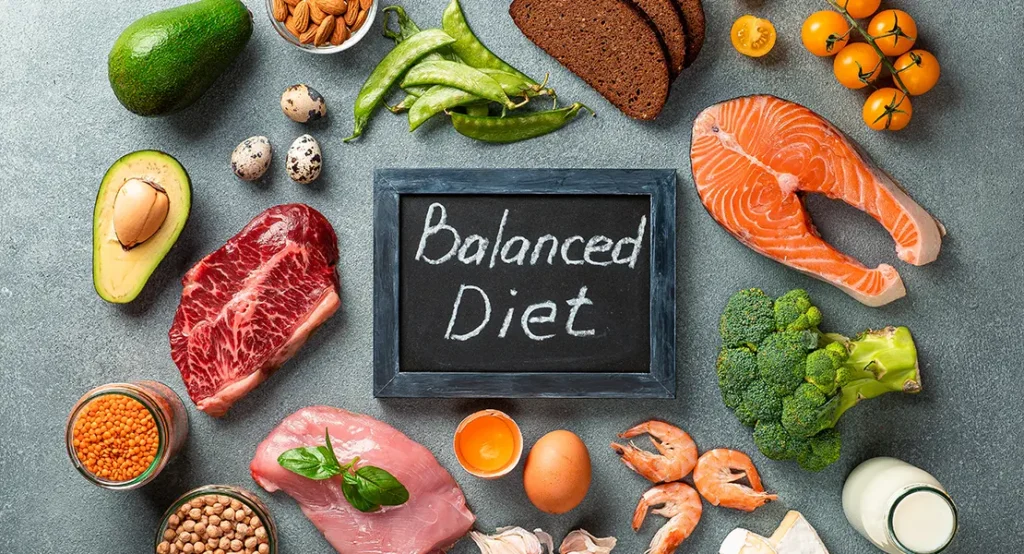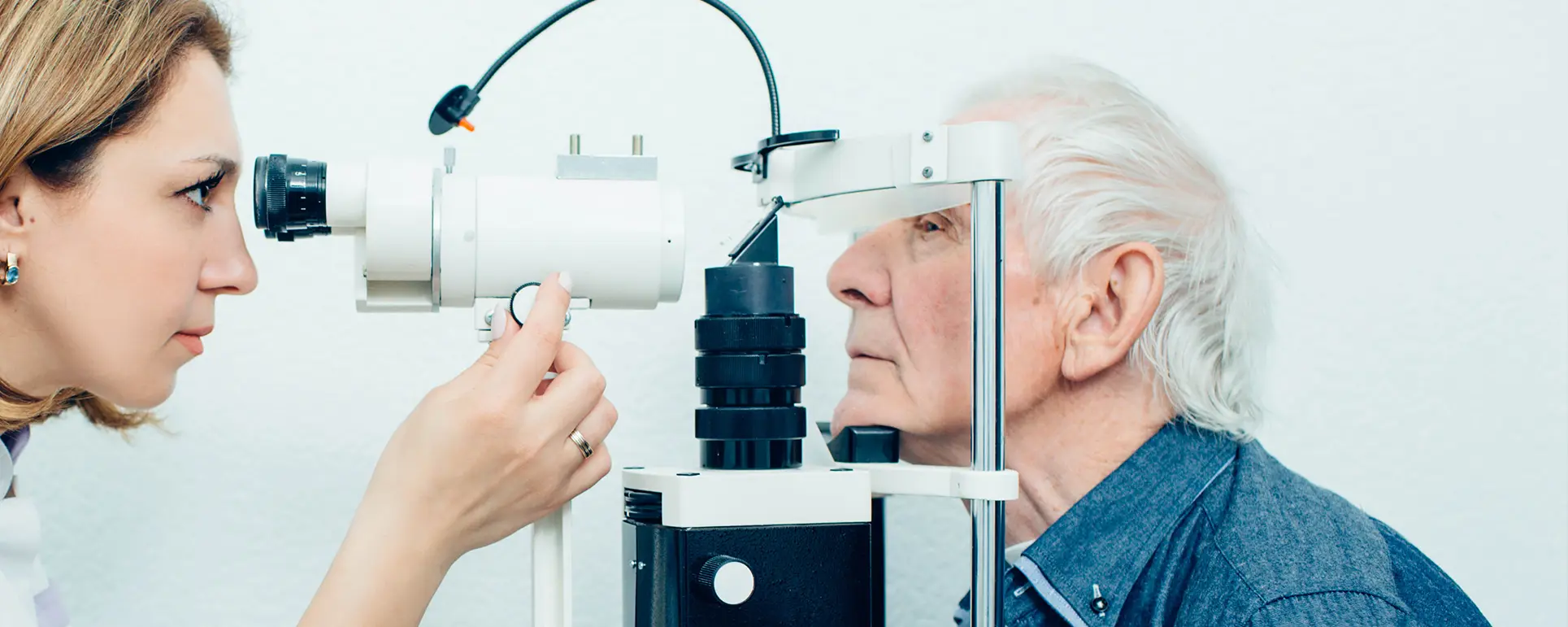Hearing that you have cataracts can feel daunting. It’s one of those words most of us associate with ageing or vision loss, and it’s natural to wonder what lies ahead. The truth is cataracts are common, and almost everyone will develop them if they live long enough. But here’s the good news: while cataracts can’t be reversed without surgery, there are ways to help slow them down.
You don’t have to sit back and watch your eyesight gradually fade. Small, everyday choices can make a real difference to how quickly cataracts progress. Whether it’s taking better care of your eyes in the sun, eating foods rich in antioxidants, or managing underlying health conditions like diabetes, these steps all play a role in protecting your lens from further clouding.
In this article, we’ll walk through practical, research-backed strategies that could help you maintain clearer vision for longer. Think of it as your personal guide to keeping cataracts from getting worse.
Understanding Cataracts
Before we talk about slowing cataracts, let’s quickly recap what they actually are. A cataract develops when the natural lens inside your eye becomes cloudy. Normally, this lens is crystal clear, allowing light to pass through so you can see sharp images. Over time, proteins in the lens can clump together, scattering light and causing the lens to appear foggy or yellowed.
The symptoms often creep up slowly. At first, you might notice blurred vision, glare around lights, or colours that don’t seem as bright as before. Later, reading, driving, or recognising faces can become more difficult.
There are different types of cataracts — nuclear, cortical, and posterior subcapsular — but they all lead to reduced vision if left untreated. Surgery is the only way to completely remove a cataract, but most people want to know what they can do in the meantime. That’s where lifestyle, diet, and protective habits come in.
Why Cataracts Progress

Not everyone’s cataracts progress at the same pace. For some, it takes years before vision becomes severely affected. For others, it can happen more quickly. Factors such as age, genetics, medical conditions, and lifestyle all play a role.
UV exposure is one of the biggest culprits. Just as sunlight can damage your skin, it can also damage your eyes. Over time, UV rays speed up changes in the lens proteins, making them clump together faster.
Oxidative stress is another factor. This is when unstable molecules (called free radicals) damage your cells, including those in your eyes. A diet low in antioxidants and high in processed foods can contribute to this imbalance.
Health conditions like diabetes can also increase cataract risk because high blood sugar affects the proteins in the lens. Smoking and heavy drinking are well-known accelerators too.
The good news is that these factors can be influenced. You may not be able to stop cataracts completely, but you can definitely slow down their progress.
Protecting Your Eyes from UV Damage
If you’re serious about slowing cataracts, protecting your eyes from ultraviolet (UV) rays is a must. Think of it like suncream for your eyes. Just as you wouldn’t sit in the sun all day without protection for your skin, your eyes also need shielding.
The easiest way to do this is with a good pair of sunglasses. Look for ones that block 100% of UVA and UVB rays. Polarised lenses are even better, as they reduce glare. Wide, wrap-around styles offer extra protection by blocking sunlight that sneaks in from the sides.
Don’t forget hats. A wide-brimmed hat can reduce exposure by up to 50%. Even on cloudy days, UV light gets through, so make sunglasses and hats a regular habit.
Protecting your eyes isn’t just about comfort; it’s an investment in your long-term vision. By cutting down on UV damage, you’re helping to keep your lenses clearer for longer.
The Role of Diet and Antioxidants

What you eat shows up in your eyes. A diet rich in antioxidants can help neutralise free radicals and reduce oxidative stress, both of which are linked to cataract formation.
Foods high in vitamin C, such as oranges, kiwis, and peppers, have been shown to support eye health. Vitamin E, found in nuts, seeds, and vegetable oils, also plays a role in protecting lens proteins from damage. Lutein and zeaxanthin, found in leafy greens like spinach and kale, are particularly powerful because they concentrate in the eye’s lens and retina.
Omega-3 fatty acids from oily fish such as salmon and mackerel are another key player. They support overall eye health and may help slow down cataract progression.
A Mediterranean-style diet rich in fresh fruits, vegetables, whole grains, and healthy fats is often recommended. Reducing processed foods, sugar, and unhealthy fats is equally important.
Think of every meal as a chance to feed your eyes the nutrients they need to stay strong.
Managing Health Conditions
Your overall health is closely tied to the health of your eyes. Conditions like diabetes, high blood pressure, and obesity can accelerate cataract development. Keeping these conditions under control can significantly help slow things down.
If you have diabetes, keeping your blood sugar levels stable is crucial. High glucose levels can alter the proteins in the lens, speeding up clouding. Work with your doctor to manage medication, diet, and lifestyle.
High blood pressure can also damage the blood vessels in your eyes, which indirectly affects the lens. Following medical advice, staying active, and reducing salt intake can help.
Regular check-ups are essential. The earlier you catch problems, the easier they are to manage. By keeping your health in balance, you’re giving your eyes the best chance of resisting rapid cataract progression.
Quitting Smoking
If you smoke, quitting may be one of the single best things you can do for your eyes. Smokers are at least twice as likely to develop cataracts compared to non-smokers. The chemicals in tobacco smoke increase oxidative stress and deplete antioxidants in your body, both of which accelerate lens damage.
Stopping smoking isn’t easy, but the benefits begin almost immediately. Your circulation improves, your oxygen levels rise, and your body starts to restore antioxidant balance. Over time, your risk of cataract progression drops.
If you’ve tried before without success, don’t be discouraged. Many people need several attempts before quitting for good. Support groups, nicotine replacement therapy, and medical advice can all make the journey easier.
Think of it this way: every cigarette avoided is a step towards clearer vision in the future.
Reducing Alcohol Intake
While an occasional drink may not be harmful, heavy or long-term alcohol consumption has been linked with faster cataract progression. Alcohol increases oxidative stress, damages proteins in the lens, and may deplete essential nutrients needed for eye health.
Cutting down on alcohol doesn’t mean giving it up completely if you enjoy it socially. Following NHS guidelines of no more than 14 units a week is a safe place to start. Spacing drinks out and having alcohol-free days makes a big difference.
Remember that moderation is key. Keeping alcohol intake in check helps protect not only your eyes but your liver, heart, and overall wellbeing.
Staying Active
Exercise might not seem directly related to cataracts, but it plays a bigger role than you’d expect. Regular physical activity helps control blood sugar, blood pressure, and cholesterol — all of which can affect cataract progression.
Exercise also boosts circulation, ensuring your eyes receive a steady supply of oxygen and nutrients. Activities like walking, swimming, yoga, or cycling are all excellent choices. The key is consistency rather than intensity.
Even small daily movements, such as taking the stairs, gardening, or stretching, can contribute to better eye health. Keeping your body strong keeps your eyes strong too.
Limiting Screen Strain
Screens aren’t directly responsible for cataracts, but they can worsen the symptoms. Prolonged screen time often leads to eye strain, fatigue, and dry eyes. When you already have cataracts, this can make vision feel even blurrier.
Simple habits like following the 20-20-20 rule (every 20 minutes, look at something 20 feet away for 20 seconds) can reduce strain. Adjusting brightness, using blue light filters, and keeping screens at a comfortable distance also help.
Taking regular breaks from digital devices isn’t just good for your eyes; it’s also good for your overall wellbeing. Reducing strain makes it easier to cope with cataracts day to day.
Regular Eye Exams
One of the most important ways to stop cataracts from getting worse is to keep up with regular eye check-ups. Even if you think your vision hasn’t changed much, your optometrist or ophthalmologist can spot subtle shifts you may not notice.
Routine exams allow your eye specialist to track the growth of cataracts, check for other eye conditions, and recommend the right timing for surgery if needed. Sometimes delaying surgery for too long can make it more difficult, so professional guidance is key.
Think of your eye exam as a progress report. The more closely your eyes are monitored, the more proactive you can be in protecting your sight.
Can Cataracts Really Be Stopped?
It’s important to be realistic. No matter how healthy you are, cataracts are a natural part of ageing. You can slow them down, but you can’t stop them completely without surgery. That said, slowing down the process may buy you years of clearer vision.
By combining protective habits, a nutrient-rich diet, good health management, and lifestyle changes, you’re stacking the odds in your favour. For many people, these changes delay the need for surgery and improve quality of life.
So, while there’s no miracle cure, there’s plenty you can do to make a meaningful difference.
FAQ: How to Stop Cataracts from Getting Worse
1. Can lifestyle changes really slow cataracts?
Yes, lifestyle changes can make a meaningful difference. While cataracts cannot be reversed without surgery, adjusting your habits helps reduce some of the factors that speed up lens clouding. For example, wearing sunglasses that block 100% of UVA and UVB rays protects the lens from harmful light exposure, while quitting smoking reduces oxidative stress that accelerates damage. Eating a nutrient-rich diet packed with antioxidants like vitamin C, vitamin E, lutein, and zeaxanthin further supports your eyes. These combined measures won’t eliminate cataracts altogether, but they can help slow their progression and maintain clearer vision for longer.
2. Is it possible for cataracts to go away on their own?
No, cataracts do not disappear naturally once they’ve formed. The changes in the lens proteins that cause clouding are permanent and continue to worsen over time. However, in the earlier stages, simple adjustments can make life easier. Using brighter lights at home, choosing anti-glare lenses for your glasses, and keeping regular check-ups with your optician can all help you adapt while cataracts remain mild. The important thing to remember is that although cataracts can’t heal themselves, you can live comfortably with them for a while before surgery is required.
3. How important is diet in preventing cataracts from getting worse?
Diet is an important factor in slowing cataract progression because what you eat directly affects oxidative stress in your eyes. A diet rich in antioxidants helps counteract the free radicals that damage lens proteins. For instance, citrus fruits, leafy greens, oily fish, nuts, and seeds all contain key nutrients shown to support eye health. By contrast, diets high in processed food, refined sugar, and unhealthy fats can worsen oxidative stress and increase the risk of faster cataract development. So, prioritising a Mediterranean-style diet that’s balanced and colourful can make a real difference to your vision.
4. Do supplements help slow down cataracts?
Supplements can be useful, particularly if your diet doesn’t provide enough essential nutrients, but they are not a magic fix. Studies suggest that vitamins such as C and E, along with lutein and zeaxanthin, may reduce the risk of cataract progression. However, the evidence isn’t consistent, and supplements are best used as a support rather than a replacement for a healthy diet. Before taking any supplement, it’s wise to speak with your doctor or pharmacist, especially if you already take medication. Ultimately, whole foods remain the best way to nourish your eyes.
5. Can cataracts cause blindness if untreated?
Yes, cataracts can eventually cause severe vision loss if left untreated, and in extreme cases, they can lead to blindness. As the lens continues to cloud over time, less light reaches the retina, resulting in increasingly blurred and dim vision. This can affect everything from reading and driving to recognising faces. While cataracts progress at different rates in different people, ignoring them entirely can limit independence and quality of life. Fortunately, cataract surgery is highly effective at restoring sight, so there is always a solution available if cataracts become advanced.
6. How often should I get my eyes checked if I have cataracts?
Most people with cataracts should have their eyes examined at least once a year, but your doctor may recommend more frequent appointments depending on your situation. Regular eye exams allow specialists to track how quickly your cataracts are progressing, adjust your glasses prescription if needed, and check for other eye conditions that may be present. The benefit of routine monitoring is that you’ll know the right time to consider surgery, rather than waiting until your vision has declined severely. Catching changes early ensures that you have more options for managing your eyesight.
7. Are there medications to stop cataracts?
At present, there are no approved medications that can prevent or reverse cataracts. Scientists are researching possible eye drops and other treatments, but nothing has yet proven effective enough for everyday clinical use. For now, the only way to remove a cataract is through surgery, where the cloudy lens is replaced with a clear artificial one. That being said, lifestyle measures such as a healthy diet, quitting smoking, reducing alcohol intake, and protecting your eyes from UV light act as practical steps to slow the process. Research continues, but surgery remains the gold standard.
8. Do cataracts always need surgery?
Not necessarily. In their early stages, cataracts may be managed with non-surgical approaches such as stronger glasses prescriptions, anti-glare coatings, or simply improving household lighting. Many people live comfortably with mild cataracts for years before surgery becomes necessary. However, once vision loss begins interfering with daily life — whether that’s driving, reading, or recognising faces — surgery is usually the most effective option. Cataract surgery is one of the most common and safest procedures worldwide, and it can restore clarity once lifestyle adjustments are no longer enough.
9. Does screen time make cataracts worse?
No, screen use doesn’t directly cause cataracts or accelerate their progression. Cataracts are linked to ageing, UV exposure, smoking, and health conditions such as diabetes, not to digital devices. However, spending long hours on screens can worsen eye strain, dryness, and glare, which may make cataract symptoms feel more noticeable. Following the 20-20-20 rule (looking 20 feet away for 20 seconds every 20 minutes), adjusting screen brightness, and taking regular breaks are all good ways to reduce discomfort and keep your eyes more comfortable when you already have cataracts.
10. Can wearing sunglasses indoors harm my eyes?
Wearing sunglasses indoors isn’t harmful, but it’s usually unnecessary unless you are particularly sensitive to light or recovering from an eye procedure. Sunglasses are most beneficial outdoors, where UV levels are strongest and protecting your lens is critical. Indoors, wearing them may actually make it harder to see clearly because they reduce brightness. For people with cataracts, it’s generally better to focus on good indoor lighting and anti-glare glasses. Save your sunglasses for outside, and you’ll get the protective benefits exactly where they’re needed.
Final Thoughts
Cataracts are a natural part of ageing, but that doesn’t mean you’re powerless. While surgery is the only way to fully remove a cataract, there are many steps you can take right now to slow their progression and preserve clearer sight. Protecting your eyes from UV damage, eating a nutrient-rich diet, quitting smoking, cutting back on alcohol, and managing health conditions such as diabetes all contribute to healthier lenses. Regular exercise and routine eye exams add another layer of defence, helping you spot changes early and make confident decisions about your care.
These lifestyle choices may not stop cataracts entirely, but they can delay the point at which surgery becomes necessary and help you enjoy sharper vision for longer. The key is consistency — the small, everyday changes you make today build up over time to protect your eyesight.
If your cataracts are starting to interfere with daily life and you’d like expert advice on the next steps, you can book a consultation at London Cataract Centre. Our team is here to guide you through your options and help you decide when treatment is right for you.
References
- Asbell, P.A., Dualan, I., Mindel, J., Brocks, D., Ahmad, M. & Epstein, S., 2005. Age-related cataract. The Lancet, 365(9459), pp.599–609. Available at: https://www.thelancet.com/journals/lancet/article/PIIS0140-6736(05)17911-2/fulltext [Accessed 24 September 2025]. (The Lancet)
- Truscott, R.J.W., 2005. Age-related nuclear cataract — oxidation is the key. Experimental Eye Research, 80(5), pp.709–725. Available at: https://pubmed.ncbi.nlm.nih.gov/15862178/ (with DOI 10.1016/j.exer.2004.12.007) [Accessed 24 September 2025]. (PubMed)
- Truscott, R.J.W. & Friedrich, M.G., 2019. Molecular processes implicated in human age-related nuclear cataract. Investigative Ophthalmology & Visual Science, 60(15), pp.5007–5021. Available at: https://iovs.arvojournals.org/article.aspx?articleid=2756953 [Accessed 24 September 2025]. (iovs.arvojournals.org)
- Yonova-Doing, E. et al., 2016. Genetic and dietary factors influencing the progression of nuclear cataracts. American Academy of Ophthalmology Journal (full text). Available at: https://www.aaojournal.org/article/s0161-6420(16)00114-7/fulltext [Accessed 24 September 2025]. (AAO Journal)
- West, S.K. & Valmadrid, C.T., 1995. Epidemiology of risk factors for age-related cataract. Survey of Ophthalmology, 39(4), pp.323–334. (Classic epidemiological review — you may retrieve via library or journal database.)

